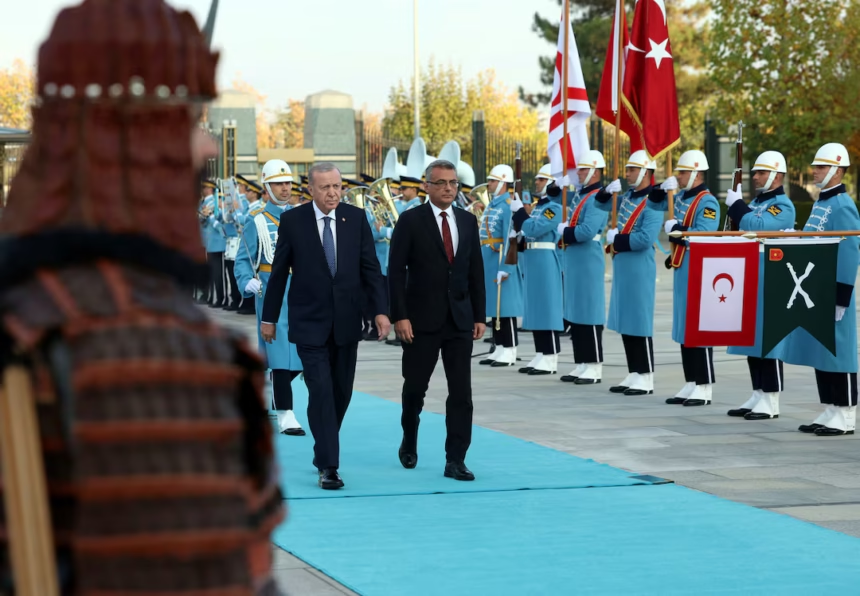Turkish President Recep Tayyip Erdoğan said on Thursday that a two-state solution remains the most realistic path to resolving the decades-long political deadlock on the divided island of Cyprus.
Speaking at a joint press conference in Ankara with Tufan Erhürman, the newly elected Turkish Cypriot leader, Erdoğan reaffirmed Turkey’s long-standing position that Greek and Turkish Cypriots should coexist peacefully as two sovereign states rather than in a single federal structure.
“The Greek Cypriot side sees the solution for Cyprus as reducing Turkish Cypriots to a minority in a partnership state that no longer exists,” Erdoğan said.
“We still believe there is a formula in which both sides can live in peace on the island.”
Erhürman’s Balancing Act: Federal Talks or Sovereign Recognition
Erhürman, who succeeded former Turkish Cypriot president Ersin Tatar, has indicated openness to reviving U.N.-backed talks on a federal solution — a framework repeatedly endorsed by the United Nations but rejected by Ankara as impractical.
However, during his first official visit abroad — traditionally to Turkey — Erhürman emphasized that the political equality and sovereign rights of Turkish Cypriots are non-negotiable.
“The Turkish Cypriot people are one of the two founding partners of the island,” Erhürman said.
“This status is neither open to debate, negotiation, nor bargaining. Nobody should expect us to follow a path that has failed repeatedly in the past.”
He also asserted Turkish Cypriot claims over energy and hydrocarbon resources across the island, underscoring that sovereign rights extend to all parts of Cyprus.
A Conflict Frozen in Time
Cyprus has been ethnically divided since 1974, following a Turkish military intervention in response to a brief Greek-backed coup. The Turkish Republic of Northern Cyprus (TRNC) — declared in 1983 — is recognized only by Turkey.
Multiple U.N.-mediated peace efforts have collapsed over the decades, most recently in 2017, leaving the island a symbol of frozen conflict at the edge of Europe.
While Greek Cypriots, who represent the internationally recognized government of Cyprus, continue to favor reunification under a federal model, Ankara and the Turkish Cypriot authorities insist that a two-state arrangement based on sovereign equality is the only viable framework left.
As tensions persist over maritime borders, energy exploration, and European Union involvement, analysts say the latest statements by Erdoğan and Erhürman signal continuity rather than compromise in Turkey’s Cyprus policy.







